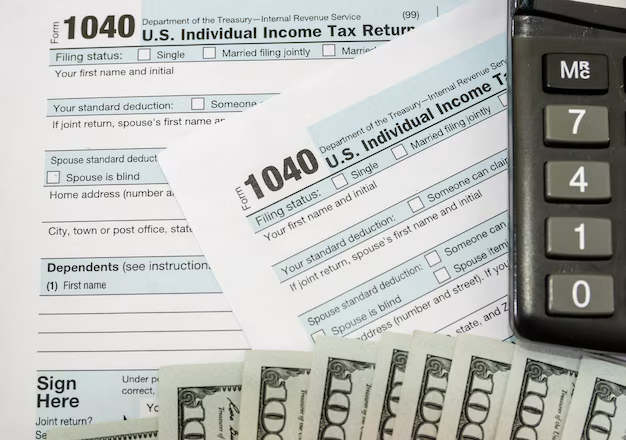Understanding California's State Income Tax: A Comprehensive Guide for 2023
Tax season can be a confusing time, especially in a state as economically diverse as California. Whether you're a longtime resident or a newcomer trying to get your bearings, understanding California's state income tax is crucial. This guide dives deep into the topic, offering a clear, engaging look at what California's state income tax entails, detailing its mechanics, and exploring related subtopics that add valuable context.
🎯 What Is California State Income Tax?
California's state income tax is a levy by the state government on your annual income. It's an essential component of California's revenue, funding public services such as education, healthcare, and infrastructure. Like federal income tax, the state income tax is progressive, meaning the rate increases as your income grows. This structure intends to balance tax burden equitably across different income levels.
📉 Progressive Tax Rates
In California, income tax rates range based on your earnings. The state uses a tiered system with multiple tax brackets. Individuals with higher incomes pay a larger percentage. This progressive system is designed to ensure that those with the ability to pay more do so, which helps provide essential services for all Californians.
Tax Rates and Brackets
For example, let's look at how tax rates generally function:
- 1% for taxable income up to a certain threshold.
- 4% - 6% for middle-income ranges.
- Up to 13.3% for the highest earners.
These rates can vary yearly, so it's always wise to check the most current rates during each tax season.
🏢 Who Needs to File?
Most residents earning an income in California need to file a state income tax return. This includes non-residents who earn money in the state. If you meet the income thresholds set by the Franchise Tax Board (FTB), California’s tax authority, you're typically required to file a tax return.
Common Filing Requirements
- Residents: Those living in California for the tax year must file if their income exceeds the minimum threshold.
- Non-residents: Required to file if they have California-sourced income that surpasses the threshold.
- Partial-year residents: Must file for the portion of the year they lived in California.
✏️ How to File?
Filing your California state income taxes can be done in several ways. Traditional paper filing is still an option, though electronic filing (e-filing) has become increasingly popular due to its convenience and efficiency.
E-filing Benefits
- Faster processing: Refunds are typically received more quickly.
- Accuracy: Reduces the chance of errors compared to manual calculations.
- Ease of use: Many tax preparation software options guide you through the filing process.
📑 Essential Documents and Information
Before starting your tax return, gather all necessary documents. Having everything ready will streamline the process and ensure no vital information is overlooked.
Key Documents
- W-2 Forms: Report wages from each job held during the year.
- 1099 Forms: Used for miscellaneous income, such as freelance work.
- Interest and dividend statements: From banks or investment accounts.
- Receipts for deductions: Charitable donations, medical expenses, etc.
💡 Tips for Decreasing Your Tax Burden
Everyone wants to pay their fair share without overspending. While every taxpayer's situation is unique, some general strategies might reduce your overall tax liability.
Practical Strategies
- Deductions and Credits: Look into available tax credits and deductions that may apply to your circumstances, such as education credits or renewable energy deductions.
- Retirement Contributions: Contributing to a retirement plan, like a 401(k) or IRA, can reduce taxable income.
- Professional Advice: Consider hiring a tax professional or using advanced software to identify all potential savings.
📆 Important Deadlines
Meeting tax deadlines is crucial to avoid penalties. Typically, the deadline for filing California state income tax returns aligns with the federal tax deadline. Keeping this date in mind ensures you remain in compliance and avoids unnecessary fines.
Key Deadlines
- April 15: Generally, the due date for filing, unless it falls on a weekend or holiday.
- October 15: Last day for filing under an extension.
📌 Summary of California State Income Tax Essentials
Here's a quick recap of some vital points about California's state income tax system, designed to help you navigate your financial obligations smoothly:
- 📊 Progressive Rates: Higher income = higher tax percentage.
- 🧾 Filing Requirement: Most residents and anyone earning in the state must file.
- 🛠 E-filing Benefits: Accuracy and speedier refunds.
- 📅 Organized Documentation: Ensures a smoother filing process.
- 🚀 Strategies for Savings: Explore deductions, credits, and seek professional advice.
- 📆 Deadline Awareness: Stay informed to avoid penalties.
🗣️ Closing Insight
California's state income tax system is designed to be equitable, ensuring that the burden shared among its residents supports the needs and services that benefit all. Understanding the nuances of this tax landscape can empower you to make informed financial decisions, ensuring compliance and potentially reducing your tax burden. Always stay updated with the latest tax laws or seek professional advice to navigate changes effectively.
Whether it's your first time filing or you're a seasoned pro, being informed about California's state income tax can make the process less daunting and more manageable. Your proactive approach is the first step toward mastering your tax obligations in the Golden State.

Related Topics
- Are State Income Tax Refunds Taxable
- Are State Tax Refunds Taxable Income
- Can Business Deductions Reduce Your State Personal Income Tax
- Do I Have To File State Income Tax
- Do You Get State Income Tax Back
- Do You Pay Georgia State Income Tax On Qualified Dividends
- Do You Pay State Income Tax On Qualified Dividends
- Does Al Have State Income Tax
- Does Alabama Have a State Income Tax
- Does Alabama Have State Income Tax
